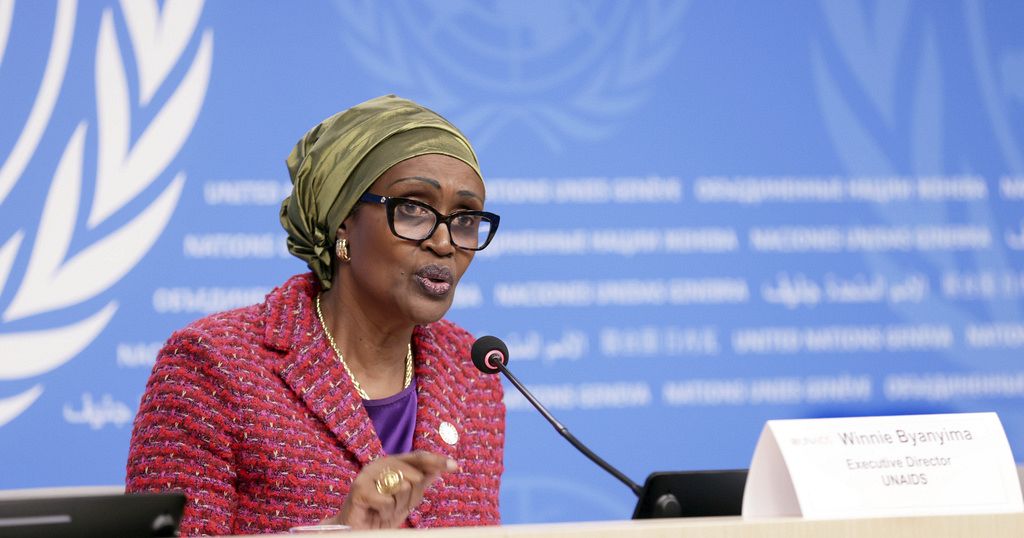
The world stands on the brink of reversing decades of hard-won progress in the battle against AIDS, according to a stark warning issued by UNAIDS Executive Director Winnie Byanyima. Speaking at the Fourth International Conference on Financing for Development (FFD4) on Monday, Byanyima highlighted the urgent need to address significant funding gaps that threaten to undermine global efforts against the disease.
Byanyima presented a grim forecast, revealing that up to 4.2 million additional AIDS-related deaths, including 300,000 children, could occur by 2029 if international funding continues to decline. The year 2024 alone saw 630,000 lives claimed by AIDS. “You can see that a pandemic that has been declining could be resurging again. The crisis is real,” she cautioned.
Funding Crisis and Global Implications
The looming threat is closely tied to the potential withdrawal of the world’s largest donor, which currently contributes 73% of all international AIDS response funding. Byanyima’s warning comes at a critical juncture, as the international community grapples with resource allocation amid competing global health challenges.
Calling for urgent structural reforms, Byanyima urged wealthy nations to support innovative financing models and policies that empower developing countries to generate their own resources. “We need rich countries to embrace debt justice, tax justice, intellectual property justice, and global public investment,” she emphasized.
Historical Context and Current Challenges
The fight against AIDS has seen remarkable progress since the epidemic’s peak in the late 1990s, when the disease claimed millions of lives annually. Global initiatives, bolstered by substantial international funding, have significantly reduced the number of new infections and AIDS-related deaths. However, the recent funding shortfall threatens to unravel these achievements.
According to experts, the potential resurgence of AIDS could have devastating effects, particularly in sub-Saharan Africa, where the disease remains a leading cause of death. The region has historically relied on international aid to support its healthcare infrastructure and access to life-saving antiretroviral treatments.
Expert Opinions and Future Outlook
Health policy experts underscore the importance of maintaining momentum in the fight against AIDS. Dr. Sarah Thompson, a leading epidemiologist, noted, “The progress we’ve made is fragile. Without sustained funding and political commitment, we risk seeing a reversal of gains that took decades to achieve.”
“Without bold action, the world could witness 6.6 million new HIV infections by the end of the decade,” Byanyima warned.
Meanwhile, the global health community is calling for a renewed focus on sustainable financing mechanisms. Proposals include leveraging public-private partnerships and enhancing domestic resource mobilization in affected countries.
Call to Action and Potential Solutions
Byanyima’s call to action highlights the need for a collaborative international response. She advocates for a comprehensive approach that includes debt relief, fair taxation policies, and equitable access to medical innovations. “We must ensure that no country is left behind in the fight against AIDS,” she stated.
The announcement comes as global leaders prepare for the upcoming United Nations General Assembly, where health and development issues will be at the forefront of discussions. The outcome of these deliberations could shape the future of international AIDS funding and the broader global health agenda.
As the world faces this critical juncture, the stakes could not be higher. The decisions made today will determine whether the global community can sustain its progress in eradicating AIDS or face a resurgence of the epidemic that has long plagued humanity.





